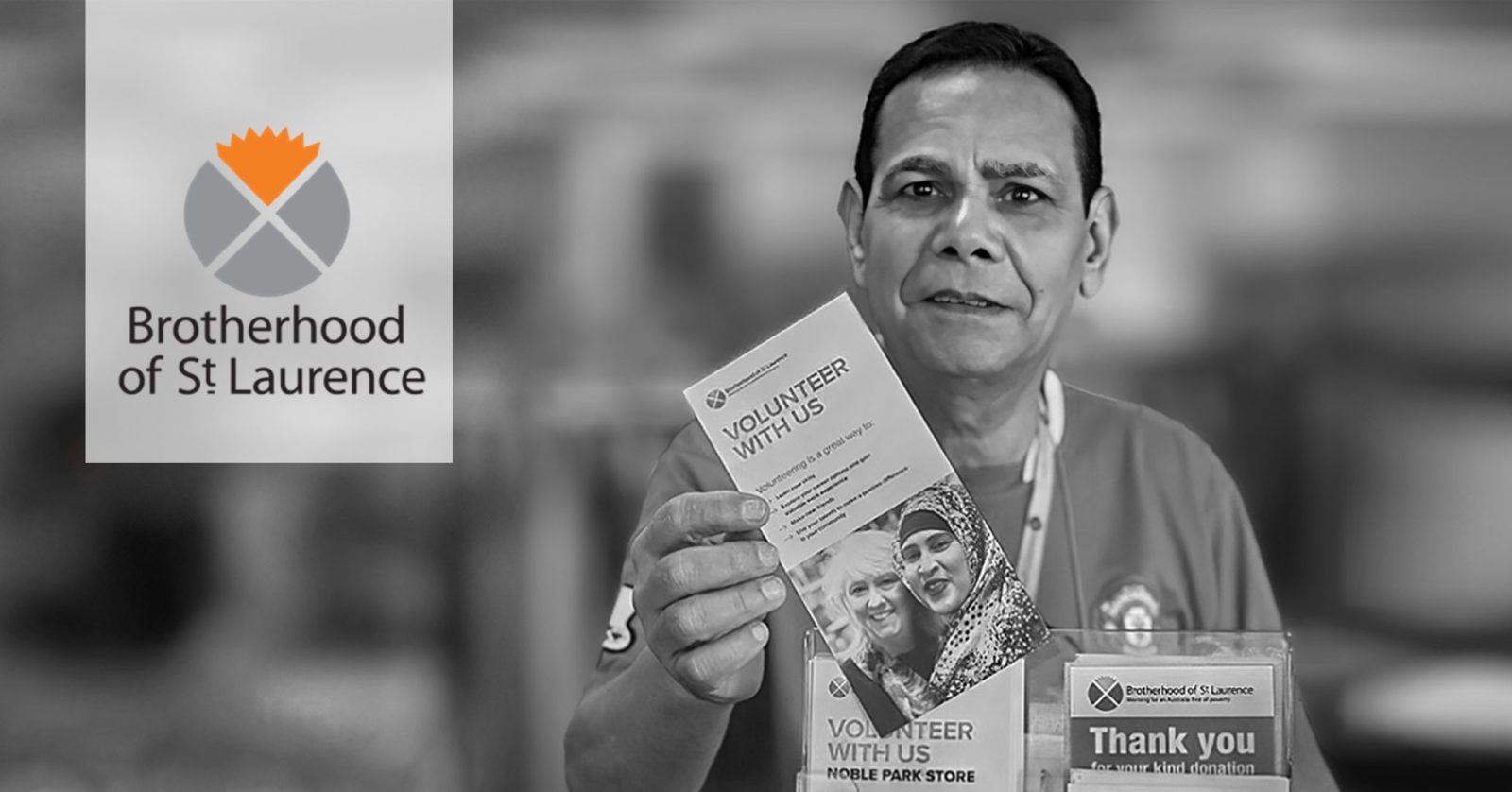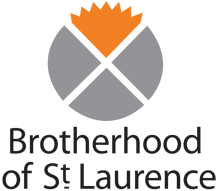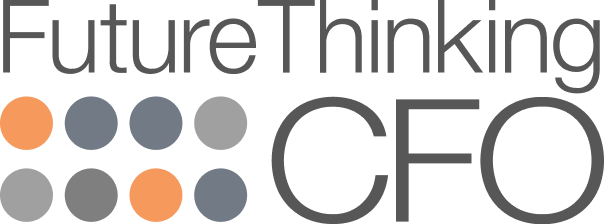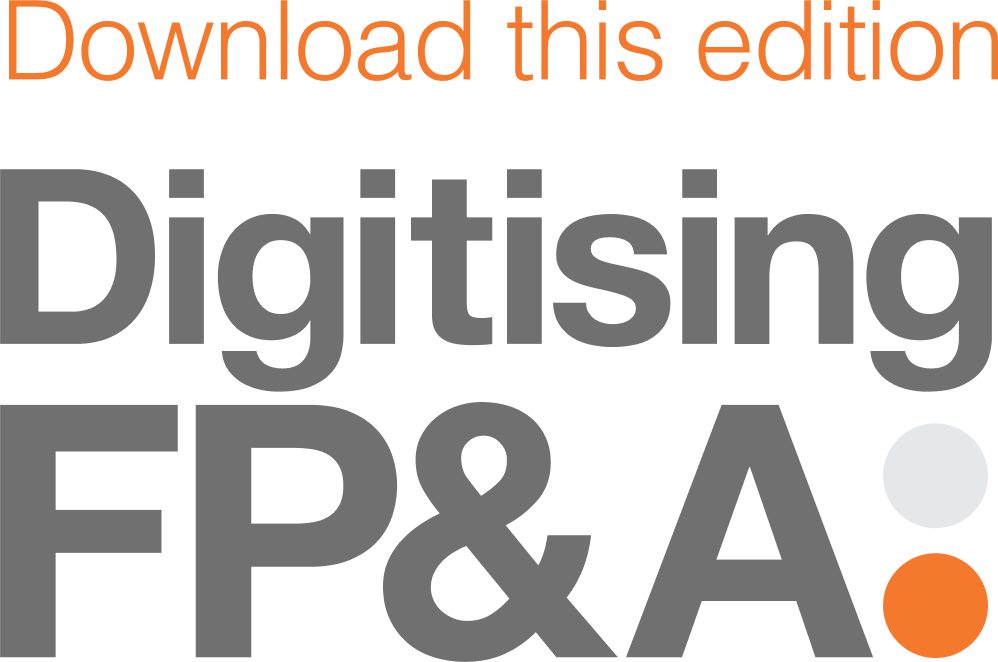Mission Australia
DELIVERING NEW HORIZONS
Mission Australia
Mission Australia is a national Christian charity motivated by a shared vision, for all Australians, where everyone has a safe home and can thrive. Since 1859, we’ve been standing alongside people in need across Australia, offering real hope that has lasting impact. Backed by our supporters, churches, partners government and other funders, we work together for the long-term wellbeing of anyone who needs us.

Faced with the limitations of an outdated budgeting and forecasting tool, Mission Australia embarked on a strategic journey to revamp its financial planning and analysis processes. The organisation sought a solution that not only addressed the immediate challenges of an end-of-life system but also aligned with its evolving business needs in a complex and dynamic sector.
The pre-existing system was fraught with inefficiencies, required extensive manual workarounds and depended heavily on a single staff member for financial reporting.
“Our old system was no longer fit for purpose and was end of life… It took us quite an extensive amount of time to even set up a budgeting and forecasting model,” Antonia Scorciapino, GM Finance Business Partners, highlighted the state of affairs before the transformation.
The drive for a new cloud-based planning tool (enterprise performance management – EPM) was precipitated by the current system’s inability to support efficient, agile planning processes for Mission Australia’s evolving and complex organisation.
“We had to start every single time from the beginning…It was just old technology,” Antonia stated, highlighting the need for a platform that could cater to the nuanced demands of their organisation.
Further compounding the decision for change was the critical gap created by a lack of data management and collaboration capabilities. Other challenges included:
- Financial and strategic planning were conducted in isolation, leading to process inefficiencies and a lack of synergy.
- Lack of integration between planning processes and enterprise data significantly impacted planning efficiency and timelines.
- Manual planning, data management, and transformation tasks added to the level of complexity and resulted in error-prone information with lengthy manual intervention required.
- Risk created by dependency on one person for reporting (single point of dependency).
- Inability to produce multi-year plans and scenario analysis.

The selection of Workday Adaptive Planning for Mission Australia’s enterprise performance management (EPM) solution and GK Horizons (GKH) as the implementation partner was the result of a meticulous market analysis, focusing on compatibility, integration capabilities, and cost.
Reflecting on the partnership with GKH, Antonia noted, “We felt like there was a good relationship between our team and the GKH team,” underscoring the importance of cultural fit in the project’s success. “We are constantly told that our project was one of the most successful projects implemented in Mission Australia. So, I’m really proud that we received great (internal) feedback.”
Antonia also highlighted the value of GKH’s input, “The advice that GKH consultants gave us in developing our models was absolutely fantastic,” emphasising the critical role that GKH’s expertise played in the project’s success.
Unique Industry Challenges & Business Models
Addressing the complexity of services provided by Mission Australia, especially in the not-for-profit and community services sector, was crucial.
“We are a not-for-profit business and there are many business models, the key models include personnel, grant funded services, aged Care, Fee for Service, property, IT, and allocations,” Antonia explained, showcasing the diverse areas of operation and the necessity for a versatile planning platform to accommodate the nature of their business. This diversity underscored the need for a partner with specialised expertise, with GKH’s experience in these areas being a decisive factor in their selection.
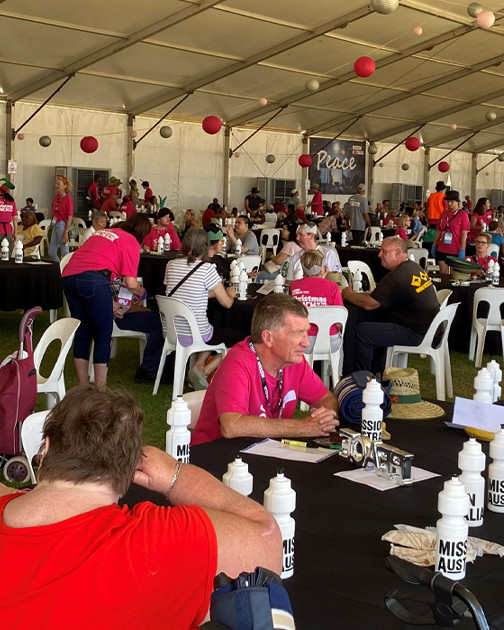
With the evolution of the aged care funding model, Mission Australia took a proactive approach by adapting its financial models to meet new challenges. The funding shift is anticipated to add significant complexity to scenario modelling, requiring detailed analysis around occupancy, resident mix, admission, discharge rights, and other operational aspects.
Antonia shared insights into the organisation’s strategy for adapting to these changes, “The operational content is managed in another system by the Aged Care team. The finance team is more concerned about minutes, hours, and everything to do with payroll. We now need to determine the fees depending on staff needs and also the fact that we have to restructure our financials to have a residential model, a catering model, all that kind of stuff. We just feel that if we can get the revenue model and the cost model for Aged Care correct in spreadsheets at the moment, and once the Aged Care team is comfortable, we will bring it back into WAP.”
Following the successful implementation of Workday Adaptive Planning, Mission Australia has realised significant benefits across the organisation. The efficiency gains have been substantial, with the process of setting up budgeting and forecasting models reduced from a month to just a matter of hours.
“We can set up a budgeting model, a forecast model, any type of version within a couple of hours. It used to take one individual plus an external resource a month of preparation. We’ve now removed the need for an external resource. So that’s a cost saving itself”.
Other efficiency gains have been substantial within Mission’s management reporting processes,
“productivity improvements are significant in the reporting space, previously we spent a week producing reports, by the time we released the reports we were getting ready for the next month end. With Workday Adaptive Planning, the data for reports are refreshed within hours after the month end close. The focus is on analysis and more time for stakeholder management”.
The new system’s ease of use and flexibility have empowered staff across various departments to engage more actively in the budgeting and forecasting processes, enhancing the overall decision-making and strategic planning capabilities of the organisation.
“Finance use the tool for budgeting, forecasting and management reporting. All cost centre Managers at Mission Australia, use the tool as contributors to the budgeting and forecasting process. IT and Corporate Support Services also use the tool for reporting, namely dashboards”.
Looking ahead, Mission Australia is set to leverage the full potential of Workday Adaptive Planning by exploring more advanced features such as multi-year planning, sophisticated scenario analysis, and rolling forecasts. This approach underscores the organisation’s commitment to continuous improvement and strategic foresight, ensuring that its financial planning processes remain agile and fully aligned with its mission and strategic goals.
Mission Australia’s journey with Workday Adaptive Planning, supported by GK Horizons, represents a significant milestone towards setting a benchmark for financial management excellence in the not-for-profit, community care sector. The successful implementation of this sophisticated cloud-based platform has not only streamlined budgeting and forecasting processes but also catalysed a cultural shift within the organisation towards greater transparency, collaboration, and strategic alignment.
The project’s success underscores the importance of selecting the right partners and solutions that understand and can adapt to the unique challenges and complexities of the not-for-profit community care sector. With GK Horizons’ expertise and the versatile capabilities of Workday Adaptive Planning, Mission Australia has laid a robust foundation for continuous improvement and innovation in its financial operations.
Significant improvements have been achieved, notably the budgeting and forecasting model’s setup time has been cut from months to hours, and management reporting creation has been streamlined from a week to merely hours for data refresh post month-end close. This efficiency gain has shifted the focus towards analysis and has afforded more time for stakeholder management.
Looking to the future, the organisation is well-positioned to respond to the dynamic needs of its community services with greater agility and insight. By embracing advanced features like multi-year planning, sophisticated scenario analysis, and rolling forecasting, Mission Australia is not just keeping pace with change but leading the way in strategic financial management.
This transformation journey is a testament to the power of partnership, innovation, and strategic foresight in driving not-for-profit organisations towards achieving their mission-critical goals while navigating the complexities of today’s financial landscape. As Mission Australia continues to explore and expand its use of Workday Adaptive Planning, it sets a shining example for others in the sector, demonstrating how technology can be leveraged to make a significant impact on efficiency and strategic decision-making.
Like to know about how GKH can expand your horizons? Click here to reach out.
Brotherhood of St. Laurence
DELIVERING NEW HORIZONS
Brotherhood of St. Laurence
Brotherhood of St. Laurence (BSL) is a social justice organisation working alongside people experiencing disadvantage to address the fundamental causes of poverty in Australia. We believe no one should live in poverty. Our mission is to pursue lasting change, to create a more compassionate and just society where everyone can thrive.

Facing a complex budgeting cycle, BSL sought transformative solutions. The organisation found it crucial to have an efficient, effective, and adaptive budgeting and forecasting system.
“Our mission has always been service-centric, and that means every budgetary decision directly impacts the people we serve,” says Christine How, Financial Planning and Analysis Manager at BSL.
Their quest led them to partner with Board International and GK Horizons (GKH), initiating a transformative journey.
One of BSL’s strategic goals is to be an inclusive, effective, efficient, and agile organisation. BSL has roughly 300 budget contributors, depending on programs being created and or terminating. This is facilitated through the FP&A team of eight that interacts with the rest of the organisation to support them in allocating resources for the next 12 months ahead.
BSL was looking for a way to elevate the role of finance by being more strategic. As such, a key focus area of the FP&A team was to accelerate decision-making across the business.
A need was identified to budget more accurately and quickly as BSL was reliant on spreadsheets at the time.
“It used to take us eight months to complete the budget with roughly 14 iterations, give or take,” says Christine.
BSL not only needed to shorten the annual budgeting cycle but also wanted to embed additional forecasting processes and have more time for analysis as opposed to just consolidating a budget once a year.
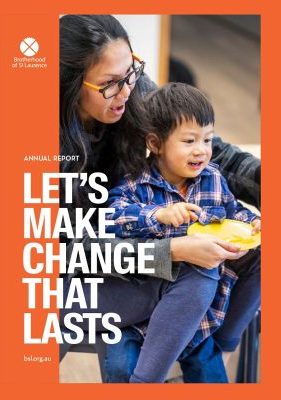
BSL’s meticulous decision-making process considered various factors, with a significant emphasis on the history of success and the alignment of GKH and Board with the not-for-profit sector. References from peers in related industries provided insights into how the two companies had fared in similar environments. This detailed examination assured BSL of the potential benefits and led to a fruitful partnership.
“We wanted a solution that echoed with our ethos, and GKH’s history with not-for-profits was an instant draw,” remarks Kevin Eng, Business Analyst – IT/Finance Projects at BSL.
Three decisive factors tilted the scales:
- Industry Alignment: “GKH’s knack for tailoring solutions to our unique challenges was impressive,” Christine noted.
- Collaborative Approach: “The Board-GKH synergy was evident. It reassured us of a smooth implementation,” adds Kevin.
- Proven Track Record: Christine highlights, “Real stories, real successes – that’s what resonated with us.”

BSL had outlined a clear timeline for the project’s completion and the project was delivered on time by GKH. Post-implementation, BSL reaped notable benefits. The streamlined budgeting process, reduced from eight to three months, was a significant milestone.
“With GKH, every challenge met a solution. Their agility was commendable. The benefits post-implementation are monumental”, says Christine.
This acceleration not only saved time but also facilitated better, informed decisions as the budget was ready prior to the financial year.
- Efficiency Gains: “From eight months to three – that’s not just efficiency; it’s transformation,” Kevin proudly states.
- Improved Decision-making: Christine emphasises, “Timely budgets mean informed decisions. It’s a game-changer for us.”
- Streamlined Iterations: “Fewer iterations meant more alignment and focus,” Kevin notes.
Furthermore, “Board isn’t just a tool for us; it’s our compass. It guides our financial decisions,” says Christine, signaling the deep integration of Board into BSL’s processes.
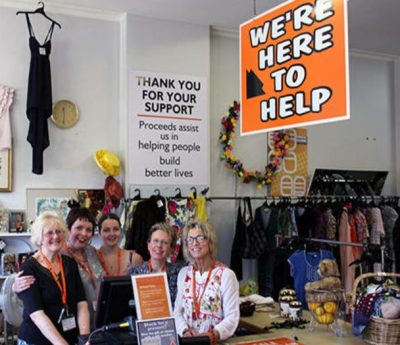
While the initial successes are commendable, BSL is not resting on its laurels. With ambitions to implement three-way budgeting, BSL intends to have a holistic view encompassing P&L, balance sheet, and cash flow. Moreover, the focus on automated data validation and bridging analysis between financial years indicates BSL’s commitment to continuous improvement.
“We’re on a continuous journey of refinement. Our vision is to have a holistic three-way budgeting system,” shares Kevin.
Conclusion: Kevin sums it up, “Our journey with GKH and Board International isn’t just about streamlining operations; it’s about laying the groundwork for a brighter, more efficient future.”
Christine nods in agreement, “In the ever-evolving landscape of budgeting and forecasting, this partnership was our beacon, guiding us to success.”
Like to know about how GKH can expand your horizons? Click here to reach out.
FSA Group Limited
DELIVERING NEW HORIZONS
FSA Group Limited

Established in February 2000, Fox Symes & Associates (FSA) has grown to be the largest provider of debt solutions to individuals and businesses in Australia. Specialising in mortgage refinancing, bankruptcy assistance, and business finance solutions, FSA helps 100,000 Australians each year take control of their finances. It is a wholly-owned subsidiary of FSA Group Limited, a publicly listed company on the Australian Securities Exchange.
With a growth and acquisition strategy on the horizon, FSA recognised they needed to change their 15-year-old budgeting and reporting processes. A key goal was to deliver reliable and timely data to its main stakeholders.
“Collecting data for our monthly reports was very difficult as we had multiple massive, and complex excel files as well extracting data from our ERP system”.
The digital transformation was driven by FSA’s CFO, Cellina Chen with the assistance of GK Horizons as their trusted implementation advisors. Cellina cites that existing excel driven processes were slow, laborious, and prone to human errors. “Collecting data for our monthly reports was very difficult as we had multiple massive, and complex excel files as well extracting data from our ERP system”.
Budgeting and forecasting were also a challenge. FSA encountered constant data inconsistency and security issues, coupled with key personnel knowledge risks. “At the end of each month, we had 2 key staff spending two days manually adjusting all the spreadsheets and manually refreshing these reports based on actuals.” The complexities associated with monthly reports were extended to yearly reports. Twice-yearly cashflow reports would take up to three days to prepare.


The Workday Adaptive Planning solution provided FSA the ability to streamline and automate their forecasting, budgeting and reporting processes. However, a well-thought-out design phase is the key to a successful future state. Cellina mentions that “GK Horizons was very helpful during this phase, had good knowledge of the planning solution and ultimately produced an outcome that suited FSA’s requirements. The team had good attention to detail and was quick to respond”. FSA currently uses the planning solution for Cashflow, Profit/Loss and Balance Sheet management.
“Now that all the data is integrated, everything is accurate, and the team is very happy.”
The models designed by GKH were specific for FSA, including a unique Marketing Model. The glue to all of this was the robust integration build, bringing in data from various sources relevant for FSA. “The initial stages of the build were complex as we had to internally manage parallel systems” Cellina says. “Now that all the data is integrated, everything is accurate, and the team is very happy.”
When it comes to forecasting, Cellina Chen said, “The solution has changed my life”. With the ability to look further out to 3 or 5 years, “all we need to do is change reforecasting dates, review, and adjust. It’s all very easy now with no manual updating of figures every month.

FSA extended their use of Workday Adaptive Planning beyond the finance team. With the assistance of GK Horizon’s integration specialist, FSA draws data from various important sources (e.g. Facebook and Google accounts), allowing Marketing Directors access to lead generation and conversation rate reporting daily. This future thinking initiative was proven critical for the organisation during covid, as they had vital information to quickly assess marketing expenditure and impact. This collaborative planning led to monumental savings for the business at a time of uncertainty.
FSA has achieved a significant return on investment from this finance digitisation. “The board of directors were initially hesitant to fund the investment, however given the results admits it’s the best investment they have ever made” Cellina says.
These results included a:
- reduced headcount by two
- reduced month-end preparation by two days
- reduced time to run scenarios by two days
- cashflow reporting used to take three days to prepare and was done only twice a year – this can now be done monthly
These efficiencies, because of reliable and centralised data, has meant the team has played a more valuable role in providing insights rather than churning numbers. Office Connect has been very well received from stakeholders, impressed with how quickly and accurately reports can be finalised. Cellina mentions her team’s reputation has been elevated within the business, a success which GKH is proud of given their aim is to make the Office of Finance perform better, function more efficiently and to make better decisions.


FSA continues to grow their business through acquisition. “The great thing about Workday Adaptive Planning is that it is quite flexible and easy to use” says Cellina. With the recent acquisition of another business, Celina’s team was able to merge two company’s financial data and report on it quite quickly.
“It was very easy to bring the new business data into Adaptive and consolidate. We can set up our own Chart of Accounts for new business and map relevant codes to bring in the right data”. More so “GK Horizons’ experienced training and education process earlier on was key to FSA becoming self-sufficient”.
Like to know about how GKH can expand your horizons? Click here to reach out.
Claim Central
DELIVERING NEW HORIZONS
Claim Central
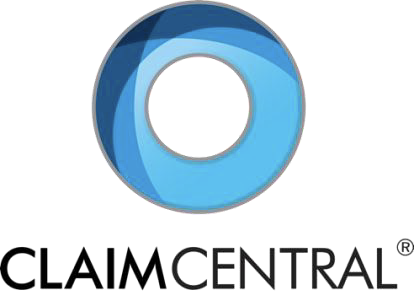
Founded in 2000, Claim Central is a global claims solutions business headquartered in Sydney. It provides services, technology, and data insights to make managing claims easier. Claim Central is trusted by many leading insurers, brokers, and underwriters globally, with offices in the United States, New Zealand, and South Africa.
When Matt Lewis, CFO of Claim Central, joined the organisation in 2019, his first initiative was to lead their FP&A Transformation (budgeting, forecasting, and reporting process). “The existing excel processes were struggling to keep pace with the increasing complexity of the business”. The business needed a reliable planning solution that would support strategy decisions. Alongside was Kiki Kang, Finance Manager, who was already equipped with prior Workday Adaptive Planning (EPM/CPM solution) knowledge, understood the importance of this task.
“Not only was the team knowledgeable and supportive, they were also responsive and worked well with the Claim Central team”
Workday Adaptive Planning was a cost effective and user-friendly solution for Claim Central, in comparison to other platforms. Working closely with Matt’s team, GK Horizons was able to design the unique models with a future proof state in mind. “Not only was the team knowledgeable and supportive, they were also responsive and worked well with the Claim Central team”. Kiki says. The focus and dedication of the finance team allowed GK Horizons to work seamlessly and with no delay in implementing the solution. “This was completed in less than 3 months. The timeframe was impressive” Kiki says.


This was just one example of the inefficiencies and challenges Claim Central faced with an excel driven process. There was a reliance of 10 different spreadsheets to manage the complexities of their business lines, as well as master data being extracted from internal platforms.
This was collated into one master spreadsheet, which often, due to its size would break from time to time. As Kiki noted further “It was especially difficult given we had multiple overseas entities to consider. Drilling down to into data seemed like an impossible task”.
It also lacked the flexibility the team needed to produce reports on an ad-hoc basis as required by the board. “There was no capability to provide deep insights to support strategic decisions” Kiki says.
Workday Adaptive Planning proved to be a valuable investment. As Kiki noted “we have reduced our hours in data collation process and now use this time for more insightful commentary”.
“we have reduced our hours in data collation process and now use this time for more insightful commentary”
Scenario Modelling can now be done as soon as assumptions are updated within Adaptive. This was particularly important during COVID as the board needed to understand the impact to bottom line. “With how our solution was designed, we’ve been in a great position to run COVID-19 scenarios to see how this would affect the P/L and cashflow” Kiki says.
Reliable and automated data also saw a shift in how easy it was for the Consolidation process. “We have integrated with our ERP, master and payroll data” Kiki says. Build-up of confidence in data (less human/manual process errors) meant it was also easier to look at the longer-term, more comprehensive impacts. “We have a rolling forecast which looks out to 5 years” Kiki says.
Stakeholders have welcomed this change as the finance team is able to provide prompt responses to their queries as well as insights to support other business units.

Claim Central was able navigate through the complexities of building reports to suit different audiences. “We are dealing with global companies, with different financial years and different data requirements” Kiki says. “Office Connect is very flexible, especially when we need to tweak different views on margins for different divisions. This has been a great value add”.
Monthly and yearly reports are now easily prepared. The user-friendly application requires only single touch to refresh updated data throughout the PowerPoint presentations. Acquiring new businesses or internal business restructure reporting has been made easier. Providing timely, relevant, and accurate data to its stakeholders has raised the finance team’s reputation.
“Office Connect is very flexible, especially when we need to tweak different views on margins for different divisions”


Both Matt and Kiki are driven to continually refine their month and year end processes.
As their business grows, Workday Adaptive Planning provides confidence in addressing the impacts of these developments.
Claim Central’s finance team has been self-sufficient over the last few years and GK Horizons has been there to provide any additional support report. “GK Horizons understands our business well and provides support when we need it”.
Like to know about how GKH can expand your horizons? Click here to reach out.
Yalumba
DELIVERING NEW HORIZONS
Yalumba
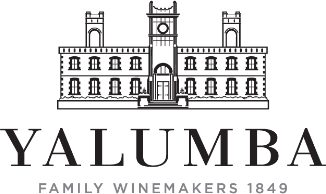
We have been fiercely independent, family owned winemakers since 1849, showcasing the best of the Barossa. For six generations we have embraced the magnificent unknown, letting the land lead the way, and growing our vines with as little interference as possible.
Yalumba is a family-owned, South Australian based mid-sized wine production and distribution company that has been operating since 1849. Yalumba’s diversified business includes primary production, vine nurseries, winemaking, bottling and distribution of their manufactured and third-party wine through wholesale and retail sales. They are a large importer and exporter of wines as well as operating vineyards and wineries in Australia and New Zealand.
Phil Armstrong, General Manager, Finance and Administration at Yalumba described their previous budgeting process as “diversified, detailed and pragmatic” at the time. Each geographic or fu nctional unit had their own customisation’s – some ‘top-down’, some predominately ‘bottom up’ – in their budget preparation process. Hyperion Planning was their main software, used as a foundational tool to manage their sales and expense budgeting. Filemaker Pro was used for their production budgets. Excel spreadsheets were also used to help with consolidation, payroll and multiple support documentation.
“We found Adaptive Planning to be logical, flexible and could be owned by the commercial part of our business (not our IT section) – consequently, user acceptance has been high and rapid.”
Phil Armstrong, General Manager, Finance and Administration, Yalumba Wines
Phil emphasized the heavy time consumption and constant correction of errors, using their previous solution. However, with a substantial amount of manual effort and user knowledge, Yalumba managed to get it working.
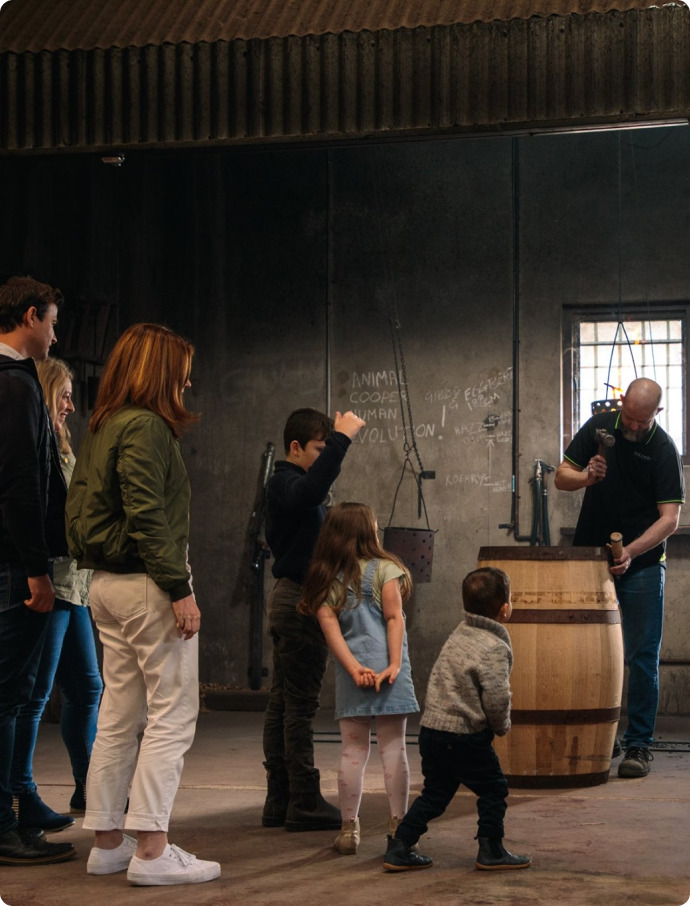

Yalumba assessed upgrading their current Hyperion software and 2 new software vendors – Adaptive Insights and IBM Cognos TM1.
“Adaptive was chosen as it had the right functional fit, a logical structure, ease-of-use, cloud-based and the lowest total cost of ownership,” stated Phil. “We were after a software package capable of initially consolidating and simplifying our planning process, and then providing agile ‘what if’ type analysis.”
Subsequently, Yalumba decided to purchase the Adaptive Planning module. GKH was chosen as implementation partners due to their commercial knowledge in addition to their extensive product knowledge. Phil and the rest of his team at Yalumba felt very comfortable that GKH understood their requirements.
Yalumba’s implementation team consisted of two senior accountants from within the business and one consultant from GKH. The consultant from GKH was Martin Kudlik, who has had over 15 years’ experience in delivering these system projects.
Due to Yalumba’s diversified processes and the desire to change to a more brand/channel based planning system, Martin had spent more time during the implementation and re-designing to Yalumba’s internal requirements. In this regard, Martin and GKH’s commercial experience proved invaluable.
Yalumba’s implementation schedule was 6 weeks which included personnel, sales and expenses, as well as the above-mentioned re-design of internal processes.

Like to know about how GKH can expand your horizons? Click here to reach out.
Port Nelson
DELIVERING NEW HORIZONS
Port Nelson
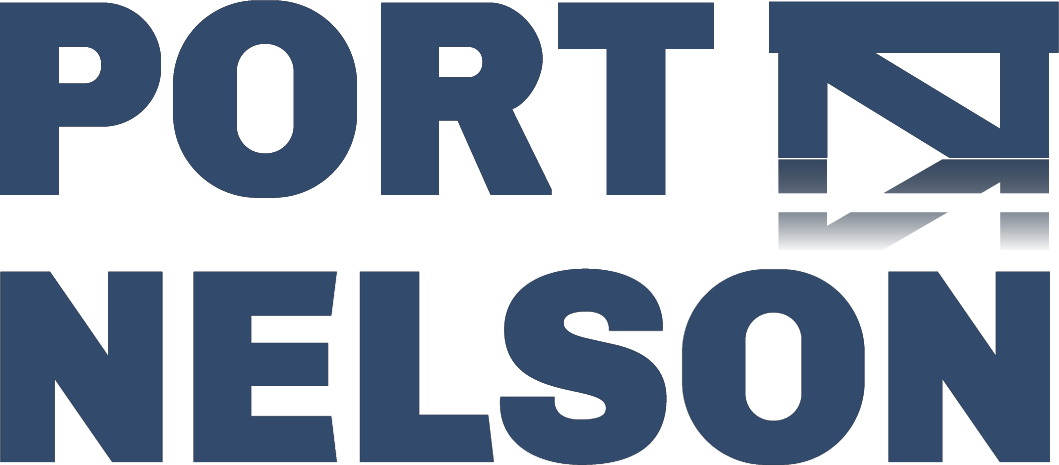
Port Nelson’s purpose is to facilitate regional prosperity, Kia āhei ki te kōkiri whakamua ki te taumata ā-rohe. Each year Port Nelson formulates its Annual Plan and Statement of Corporate Intent detailing how it will deploy its people, assets, and alliances to add value to our stakeholders and deliver against our strategic pillars.
Why we wanted to implement a forecasting tool was two-fold: one our current systems were very reliant on Excel and it was also resident within one particular person.
What we found going through an RFP process was the two things that we wanted to get out of it, in fact the determining things, were usability and obviously functionality.
The key is getting the right people and there’s no doubt about it, the people who we had on the implementation up for Workday Adaptive Planning (Adaptive Insights), the GK Horizons team was second to none, it was absolutely a vital part of a successful implementation.
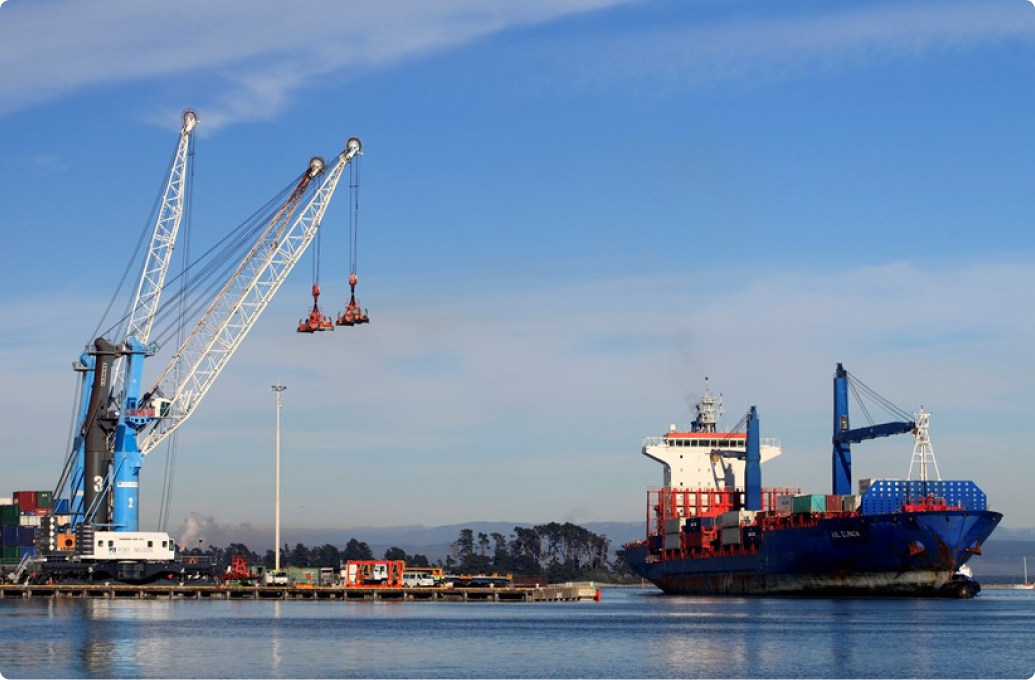

Implementation timeframes from the forecasting tool for us was it was sort of unbelievable and then if it could be done in six weeks or even less three weeks was talked about. Ultimately Martin came in and his expertise allowed us to, within a three-day turnaround, summarize our ports entity wide activities, which consists of probably half a dozen small medium-sized businesses in its own right and able to transpose that into a solution within Workday Adaptive Planning (Adaptive Insights).
“We had a hailstorm on a Friday that pretty much devastated our crops. For that Friday meeting [which was] three days later, we were able to pull some levers, make an estimate of the reduction in our apple crop, which is not really our business, but certainly the resultant produce flowing through the port impacts on our business activity.
By moving some key levers that flowed immediately through to the bottom-line balance sheet and cash flow, we were able to update the board within a two-day minimal effort requirement and that was a good justification and outcome from a board level perspective as to the results.”
Mason Robinson – Port Nelson Finance Manager

Like to know about how GKH can expand your horizons? Click here to reach out.
Hill Laboratories
DELIVERING NEW HORIZONS
Hill Laboratories

Hill Laboratories is New Zealand’s leading analytical testing laboratory supplying a broad range of laboratory tests across three major areas: Agriculture, Environmental and Food. A privately owned company based in Hamilton, NZ, Hill Laboratories have offices across New Zealand, an office in Japan and employ over 300 people in total.
Hill Laboratories is New Zealand’s leading analytical testing laboratory supplying a broad range of laboratory tests across three major areas: Agriculture, Environmental and Food. A privately owned company based in Hamilton, NZ, Hill Laboratories have offices across New Zealand, an office in Japan and employ over 300 people in total.
Before Adaptive Insights [Workday Adaptive Planning] was implemented, the budgeting process was very time consuming and inefficient, using numerous linked spreadsheets proving very difficult to maintain.
“Finance staff spent most of the budget time reconciling spreadsheets, checking broken formulas and consolidating sheets, rather than reviewing and adding value to the process” said Alistair Brown, CFO.
Significant resources were used inefficiently, highlighting the need to move to a more robust process to ensure the accuracy of the budget.
“In addition we needed to ‘future-proof’ our process by providing a system with the flexibility to grow and change with the company, to better utilise resources and skills across the finance team and in doing so improve staff satisfaction and opportunities to develop other skills” said Brown.


Hill Laboratories were searching for a budgeting product that would suit their business size and meet their needs. The Adaptive Planning module from Adaptive Insights [Workday Adaptive Planning] was identified as their preferred product.
Their initial search identified 10 products, which was then shortened to 5 and then again to 3. The last phase was to view product demonstrations, check reference sites, where possible, and review the pricing.
The implementation went very smoothly and was delivered within the scheduled 6 weeks.
“GK Horizons are extremely professional and knowledgeable in the finance area which Hill Laboratories felt was part of the success of our implementation” said Brown.
GK Horizons’ knowledge of the product meant that they were able to actively contribute to the design process by putting forward solutions and/or alternate options on the structure and how the solution could best be utilised. This combined with their finance and accounting skills meant they were able to build it specific to Hill Laboratories needs.

Following the implementation Hill Laboratories were able to prepare their 2014/15 budget within Adaptive Planning without using any support from GK Horizons.
“Our budget process was reduced by 3 weeks. Business unit managers were more engaged in the process and felt they had more control over it as they and their teams had control over the changes and saw the impact of those decisions immediately” said Karen Tootell, Management Accountant.
GK Horizons were on hand to provide support during their first annual budget using Adaptive Planning but no assistance was required during the entire budget cycle. This is testament to the product’s ease-of-use and the hybrid implementation approach used by GK Horizons.
The resources needed from finance to check and consolidate the figures was reduced significantly and the saved time was used to assist the managers understand their numbers better.
Like to know about how GKH can expand your horizons? Click here to reach out.
Help Enterprises
DELIVERING NEW HORIZONS
Help Enterprises
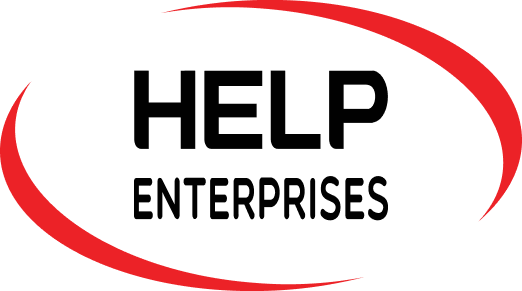
HELP Enterprises is an Australian social enterprise that provides infrastructure and services to enhance the lifestyle and independence of people with disability. HELP’s charitable services are funded through several commercial initiatives that also provide direct employment opportunities for those with disability.
HELP Enterprises is a social enterprise with a commercial mindset that operates several businesses which help fund services and employment for people with disability.
Each of these businesses as well as HELP’s charity initiatives have unique budgeting, forecasting, and reporting requirements. As the organisation grew, these requirements became too complex to manage using spreadsheets.
HELP needed a more powerful solution for finance that would put an end to broken formulas and enable strategic analysis.
Diverse finance requirements — Each of HELP’s commercial businesses and support services had widely different budgeting, forecasting, and reporting needs. Spreadsheets no longer fit-for-purpose After doubling revenue and headcount, HELP required a finance solution that could handle more metrics, more efficiently.
Risk of errors and rework — As HELP pushed spreadsheets to the limit, there was greater risk of formula errors and models breaking down. Limited strategic analysis — The time spent comparing month-on-month and year-on-year data in spreadsheets limited time available to strategic analysis.
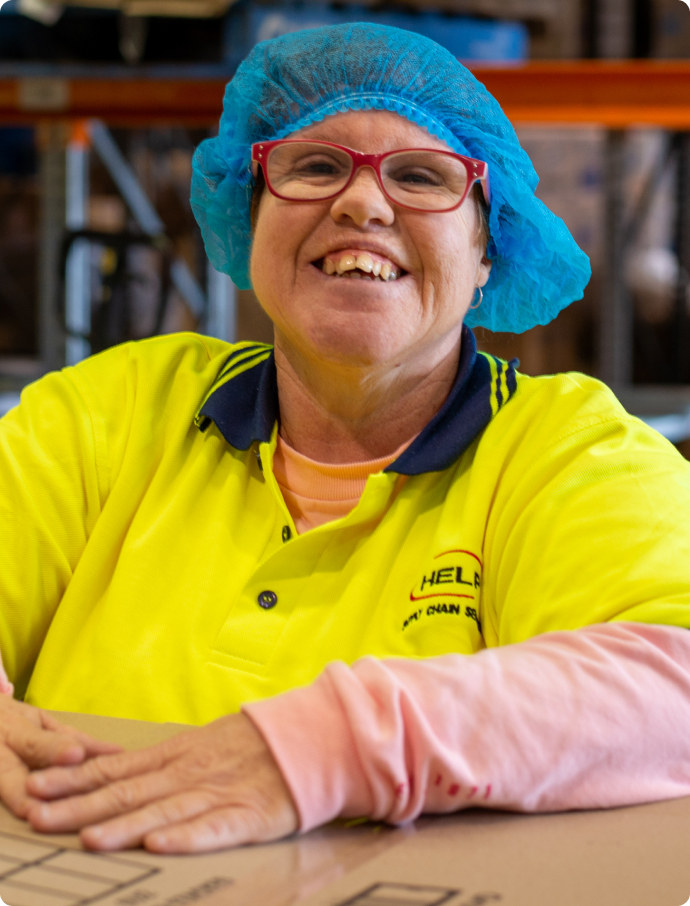

The solution was implemented by GK Horizons who helped to replicate and build on the modelling HELP had previously set up in spreadsheets.
This has provided HELP with increased flexibility to model and report on a wide range of metrics that underpin its mission.
These include everything from manufacturing KPIs to employment statistics. Finance can also drill down into the data to provide stakeholders with value-added insights they can use to sustain organisational growth.

A single, flexible solution for finance — The Business Planning Cloud simplified the complexity of budgeting, forecasting, and reporting for diverse businesses with a wide range of KPIs.
Modern and agile planning and reporting — Powerful modelling and reporting capabilities help finance keep pace with the growing organisation and provide stakeholders with more data for decision-making.
Reduced risk — Broken models and formulas are no longer an issue, making budgeting and forecasting more accurate and efficient.
Detailed trend reporting — The ability to drill down into P&L and KPI data allows finance to provide stakeholders with value-added insights to further the organization’s mission.
Today, using the Adaptive Insights Business Planning Cloud, HELP’s finance team is able to manage budgeting, forecasting, and reporting for all of the organisation’s businesses and services with ease.
Like to know about how GKH can expand your horizons? Click here to reach out.
Go Healthy
DELIVERING NEW HORIZONS
Go Healthy

We all want to be healthy, to be happy, feel good and to live longer. To live the life we dream of.
We know that looking after ourselves, a good diet and exercise are important, but life is busy. We don’t always do and haven’t always done what we know we should. And we all know that modern medicine doesn’t hold all the answers.

Founded in 2008, GO Healthy is New Zealand’s number one selling supplement brand in pharmacies. Its products are manufactured and sold in pharmacies and health food stores in New Zealand and also available in Australia and Singapore.
As New Zealand’s number one pharmacy vitamin brand, GO Healthy is passionate about helping everyone operate at their peak and it’s equally ambitious about its own performance.

When the company’s manual planning and reporting processes failed to keep up with its growth, it looked for a solution to help finance streamline reporting and address error-prone consolidation and unreliable forecasts.
- Slow and error-prone consolidation – Consolidation was managed in Excel with information pulled from three separate ERPs, slowing down budgeting and reporting and creating risk of error
- Limited insight – Data was isolated in different spreadsheets, making it difficult to compare budget to actuals and extract new insights to drive growth
- Unreliable forecasts – Forecasts were created based on product units for manufacturing planning, but with 600 SKUs and six major distribution channels it was difficult to translate these units into revenue
- Lack of agility – Time and effort spent on manual processes made it difficult for finance to keep pace with the business and accommodate new requests
Partnering with GK Horizons, GO Healthy implemented the Adaptive Insights (Workday Adaptive Planning) Business Planning Cloud in just six weeks.
“The cloud-based planning solution replaced error-prone spreadsheets and streamlined activities like group consolidation that can now be done in real time — rather than the three days it took previously. The implementation by GK Horizons was also super-fast, astonishingly easy and even came in under budget which is hardly heard of in IT projects. Both the training and ongoing support they provide is also really good; I’m now a super user and can do things like basic modelling myself and reach out to them when I need help with something more difficult.”
Eva Kaminski, Group CFO | GO Healthy


Today, the finance team can more easily compare budgets to actuals and accurately forecast revenue. With three days saved per month on reporting, finance is also more responsive to the needs of the business and a strategic partner in driving GO Healthy’s success.
- Real-time consolidation – Consolidation is now instant and more accurate without the risk of errors related to data entry and complicated Excel formulas.
- Best practice reporting – Finance has saved three days per month on reporting while also delivering more reliable and detailed information to inform decision making
- Clearer view of revenue – Forecasts are now completed monthly and include sales and operations indicators, including revenue. Version comparison allows finance to measure forecast accuracy to inform future refinements
- Finance now a trusted partner – With time saved on reporting and consolidation, finance can quickly respond to requests and act as a strategic partner to the business
Like to know about how GKH can expand your horizons? Click here to reach out.
Gallagher
DELIVERING NEW HORIZONS
Gallagher

We are a global leader in the innovation, manufacture and marketing of animal management, security, fuel systems and contract manufacturing solutions. Our customers and their needs inspire us to create new possibilities adding value to their business.

When a horse called Joe took too much of a liking to using a car as a scratching post, owner Bill Gallagher Senior scratched his head for a solution. He devised a cunning electrical circuit that delivered a shock whenever the horse rocked the vehicle. This quickly cured the problem and sparked the idea for his electric fence invention.
That was in the early 1930s. By the end of the decade Bill had built his first electric fence and had made a long-term commitment to building a great business that redefined what’s possible for its customers – Gallagher. In 1962, Bill Senior’s son Bill Junior started working on the Gallagher shop floor. Moving up through the ranks, he helped us grow from a company delivering a visionary alternative to conventional fencing into one renowned for technologically superior, highly intelligent and fully integrated animal management systems.
Today, Gallagher is still lead by Bill Junior, now Sir William Gallagher, and we continue to win awards and accolades for innovative and transformational products across our businesses as a global leader of animal management, security, fuel systems and contract manufacturing.

Growth almost always results in a complex structure for planning and forecasting. The finance team was spending three months on annual planning and had limited ability to model and plan for different scenarios.
Growing complexity – With diverse business divisions and distributors in 100 countries, budgets and forecasts were difficult to produce and involved complex calculations, foreign currency conversions and consolidation.
No room for agility – A three-month annual budgeting process and the difficulty of updating budgets and forecasts limited the business’s responsiveness to change.
Lack of budget ownership – Teams didn’t have the tools or data they needed to take control and accountability for their own budgets.

Implementing the Workday Adaptive Planning cloud solution helped the team to finally step away from the detail and take a more strategic approach. GK Horizons advised on a straight forward approach with minimal configuration that fully leveraged the capabilities of Workday Adaptive Planning.
The rollout was completed in less than six weeks and the benefits were almost immediate. Annual budgets now take just six weeks, and reforecasts can be completed in three days. In addition, business teams now have real-time access to the data they need to manage their own budgets.
Easy and streamlined planning — Workday Adaptive Planning provides a simple structure for budgets and reports and automates complex currency calculations.
Dynamic planning and forecasting — Annual budgeting now takes six weeks, reforecasts can be completed in three days, and the business is moving toward scenario planning based on AI.
Teams empowered and accountable — Teams now have real-time access to finance data and can make changes on the fly to manage their own budgets.
This model helped the group expand into the successful, multimillion-dollar global company it is today.

Like to know about how GKH can expand your horizons? Click here to reach out.



